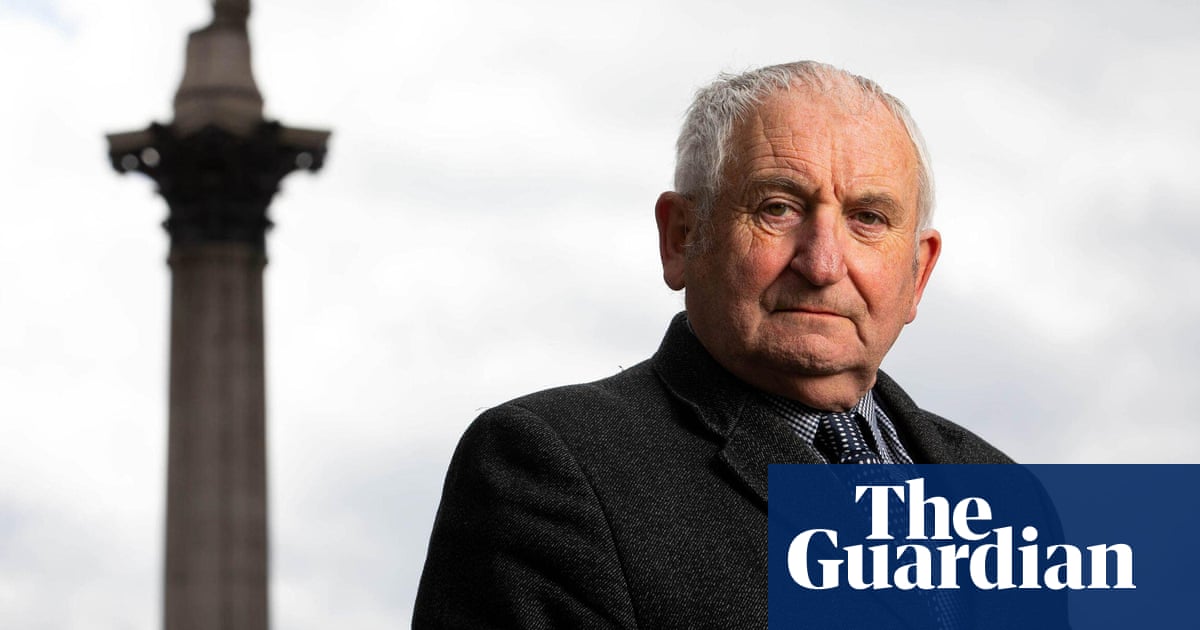When it comes to the legendary American director John Ford, you either get it or you don’t.
If you connect with his work – and for me it’s a connection far beyond any other I have experienced through cinema, felt somewhere between the back of my throat and the depth of my soul – then nothing else matters. Not his films’ conflicted politics, their interludes of witless brawling, or those sequences of drunk comedy we can tactfully classify as “broad”.
Because the passages of pure poetry that litter his movies, lit by his staggering instinct for visual composition, and underpinned by a choking emotion, leave his rivals trailing in the desert dust. Simply put: if you can’t take him at his interminable Victor McLaglen punch-ups, you don’t deserve him at his heartrending graveside soliloquies.
This is, I can’t help but notice, the first mention of heartrending graveside soliloquys in the “My feelgood movie” slot, and it’s true that Ford’s films – while allowing us to scale the peaks of emotion – don’t always fit snugly into that upbeat bracket.
Wagon Master does.
And that’s the way it was supposed to be: for the audience, the writers and the man himself.
“I am a director of westerns,” Ford liked to say, and though it was a pose of sorts, it contained an essential truth. During difficult times, he would retreat to his cherished genre. In November 1949, after an especially stressful period, he took a no-name cast to Moab, Utah, to make a cheap movie about a Mormon wagon train. Throughout the 31 days of filming, the notoriously cranky director remained alarmingly amiable. “I thought maybe he was ill or something,” said star Harry Carey Jr.
But no: merely contented. “How he loved making it,” recalled Ford’s son, Patrick, who co-wrote the script. “Wagon Master was pure of heart and simple and good, and Frank Nugent and I were pure of heart and simple and good when we wrote it.”
Their story focuses on two young horse traders, Travis (Ben Johnson) and Sandy (Carey), who guide a group of God-fearing folk and some dissolute show people – the two sides of the director’s personality – to the “promised land”.
Wagon Master’s great appeal lies in the feel of the thing. “Be gentle,” Travis encourages a restless horse, and that spirit pervades the film. It is Ford’s gentlest picture and arguably his most beautiful, both on the surface and beneath it. The film is a plea for tolerance – most of its characters having just been run out of town – that is augmented by a thousand perfect details in word and image: the dialogue spare and true, Ford’s camera going to a square dance and focusing first on the wooden planks shifting in the dirt.
He referred to the small moments in his work that capture character or evoke emotion as “grace notes”, but this is the only time he assembled almost an entire picture from them. It’s the way Travis braids and burns a rope as he talks. It’s Alan Mowbray’s soused snake-oil salesman putting on his top hat to receive visitors. It’s characters expressing mutual fondness through the medium of name-calling. “That rube,” says hoochie coochie dancer, Denver (Joanne Dru), staring after Travis, her eyes sparkling. It is, too, the smoke of the campfires, the babble of children, shafts of light passing through the slats of wagon wheels, and a colt trotting up a riverbank in a world where water means life.
“Just play it relaxed,” Ford said to his stars before their opening scene, and the laidback atmosphere is perfectly mirrored in Johnson’s performance as the laconic, ineffably cool title character. In the film’s finest sequence, which sees him go “a-courtin’”, Wagon Master’s virtues hang in perfect balance, while spotlighting the most beguiling sight in all of cinema: Johnson on a horse. He canters towards two distant, inky figures silhouetted against the desert haze and dwarfed by the filigreed fingers of the rock formations. Travis wants Denver to come live on his ranch; she thought her past had shut her off from that forever. It’ll never work, she decides; “Goodbye, fella,” she says, before sprawling dreamily in her departing wagon, her circumstances the same but her life forever changed.
While Ford conjures a world I love to visit, in its rhythms and its rituals, the film’s brand of escapism consists of more than that. It doesn’t just transport us somewhere special, it arms us to deal with what we are fleeing. Rupturing and then repairing an idyll, it argues that right is might but knows a better world must be fought for. It casts a unique spell, yet reminds us that community – and not escape – is the antidote to loneliness.
The film meant just as much to its maker. “Uncle Jack always said Wagon Master was his favourite picture,” wrote Carey Jr in his memoir. “I think The Searchers was his best film, but Wagon Master was the most joyful … One month of total unity and happiness – that was Wagon Master.”
It shows.
-
Wagon Master is on Tubi in the US and on BBC iPlayer in the UK

.png) 4 hours ago
2
4 hours ago
2













































